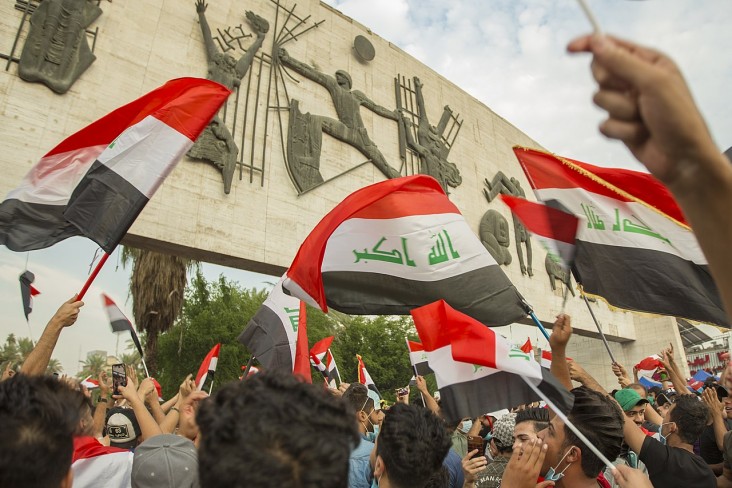Speeches Shim

Transparent and fair elections are an important step in the democratic process and contribute to national stability. USAID is supporting the Iraqi electoral process by building the organizational capacity of the Independent High Electoral Commission (IHEC) and fostering inclusive and responsive civic engagement by all Iraqis.
Project Snapshot
-
Partners: International Republican Institute (IRI) and International Foundation for Electoral Systems (IFES)
-
Locations: Whole country; CSO activities are targeting Anbar, Dohuk, Baghdad, Diyala, Kirkuk, Najaf, Ninewa and Thi Qar provinces.
-
Budget: $26 million
-
Duration: October 2018 - September 2023
Context
In 2018, Iraq held its first nationwide election since the military defeat of the so-called Islamic State of Iraq and Syria (ISIS). Though the election held the potential to steer the country towards a more democratic political process, the low voter turnout, claims of fraud, and significant delays in the results all worked to discredit the vote and call further into question the capacity of the governance mechanisms to respond to citizens’ needs. The Iraqi Prime Minister has announced that parliamentary elections will be held in June 2021, a year earlier than anticipated, in response to demands of anti-government protesters. Transparent and fair elections are an important step in the democratic process and contribute to national stability. As the 2021 election draws near, Iraq faces several challenges to ensuring a transparent and inclusive election process, including: building the organizational capacity of the Independent High Electoral Commission (IHEC), and fostering inclusive and responsive civic engagement by all Iraqis.
USAID Response
Since 2018, the Iraqi Provincial Elections Activity (IPEA) has supported Iraq’s electoral process by:
Building the organizational capacity of the IHEC to manage complex processes with integrity and competence. USAID provides technical support and advice on election operations, including voter registration and education, public information, and election-related technologies. The project also assists the GOI in reforming electoral legislation to improve efficiency, participation, and transparency.
Enhancing citizen understanding of the electoral process and fostering greater civic engagement, particularly among youth, internally-displaced persons, and other marginalized communities. Working closely with local partner organizations, the project is helping the IHEC to expand their outreach efforts to the Iraqi public and political entities, including creating opportunities for direct dialogue and discussion in order to combat disinformation and inaccurate news, especially through social media.
Achievements to Date
-
Building strong relationships with the IHEC and the Board of Commissioner: the IHEC sees the value in USAID’s technical assistance and support in building partnerships with Iraqi CSOs.
-
Increased knowledge among local civil society partners on designing and implementing civic education curricula.
-
Enhanced visibility: content developed by the IPEA project and its Iraqi CSO partners have had nearly 2 million views, reactions, and interactions on social media.

Comment
Make a general inquiry or suggest an improvement.